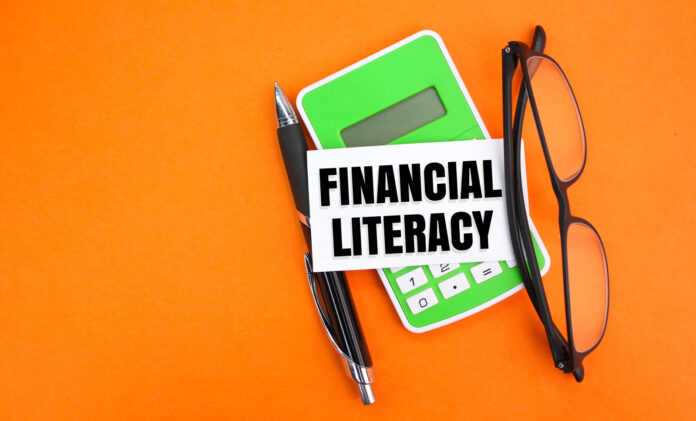By: Ashley Ann Reich
Each April, we have an opportunity through Financial Literacy Month to focus on the topic of finances and assess what might need to change regarding our education on money, or just simply adjusting our strategy for the rest of the year. With inflation continuing to trend high and Americans feeling stretched in many areas of their budget, it creates a need to be more strategic with our finances. Regardless of where your education level is related to finances, there are some overarching concepts that will provide you with the empowerment you need to be successful with money.
Defining Financial Literacy
There are many different education levels around money. If you are like me, your family provided a foundation to build upon when it came to money and budgeting, but let’s be honest, most individuals were never taught how to properly manage their money or even create a budget. Financial literacy can be defined as the ability to understand financial concepts and then take those learned concepts to apply to your financial situation – easier said than done, right? In April, there is a concerted effort by many financial institutions, colleges, universities, and even libraries to provide education around money and finances. Many reading materials, podcasts, and videos have been created to allow for an easier consumption of materials. Regardless of your preferred learning style, there is an option for you to become more educated.
Start with a Budget
If you are uncertain where to begin with finances, the best place to start is with a simple budget. This can be overwhelming if you have never completed one before, but it does not need to be complicated. Dave Ramsey reminds individuals often on his radio show that most are living paycheck-to-paycheck and believe that living in debt is “normal.” Changing your mindset around debt and learning to control your money will provide a new outlook on life – and freedom! There are many budgeting tools out there, and they can be as simple as a notebook and pen. Here are a few tips to get started:
- Log in to your bank account and begin to write down all your expenses for an entire month. This is a very eye-opening experience to see where your money is going.
- Calculate your monthly income and subtract your expenses – do you come out in the negative, or do you have money left over?
- If you are in the negative, determine what needs to be cut out of your budget. If you have extra, determine if this should be used to pay off debt or to complete another financial goal.
- If you have debt, calculate the monthly amount and total you need to pay it off. How long will it take you to get rid of that debt once and for all?
- Stick with this habit for at least three months, and it will become second nature to you.
Consider Your Future
Once you have a handle on a budget that will work for your current situation, it is time to start considering your future. For many, the future seems bleak, and retirement may be a fleeting thought, but there are other options on the table. Investing in retirement and other conservative options such as an IRA or Roth IRA are great starting points. NASFAA suggests beginning your retirement savings as early as possible to allow enough time for your money to grow. There are many educational opportunities around retirement, and it is best to consider when you would like to retire and what you would need monthly as income for your retirement expenses. I highly suggest considering a realistic goal as well as a “dream” goal (meaning, if could do anything). If you are a parent, it is best to educate yourself on the various options for college funds. Popular college fund options are 529s and Roth IRAs, which each have their own benefits depending on your state of residence as well as your future goals with the fund. Retirement can become a reality with some simple steps and choosing the right options now.
Financial Education Options
I’ve included some materials about financial literacy. Below are some of my tried-and-true finance websites that provide a wealth of materials for all ages and stages.
Websites
- Ramsey Solutions: www.ramseysolutions.com
- Nerd Wallet: www.nerdwallet.com
- U.S. News & World Report: https://money.usnews.com/money/personal-finance
- Your specific state’s Department of Treasury website
Additionally, in a recent article I completed on my favorite podcasts, there are several listed under “Money” that provide solid advice and education around the topic of finances, budgeting, and saving for the future. In honor of Financial Literacy Month, make a personal goal to increase your education around finances this year. Education around this topic will continue to keep you informed of various options and will help you feel more in control of your money and your future.

ABOUT THE AUTHOR
Ashley Ann Reich has been with Liberty University since 2007, first working in Student Financial Services and then as Executive Director of Government Affairs before transitioning to her current role as Senior Vice President of University Compliance. During her time at LU, Ashley started the first financial literacy program, reaching thousands of students in budgeting, paying down debt, and planning for the future.










